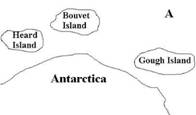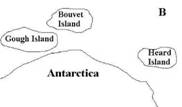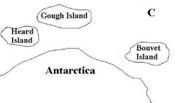
题目列表(包括答案和解析)
D
When I walked into the house after school, I found my dad at home.
"What are you doing home already?" I asked casually.
"Andrew, I was laid off today," he answered quietly.
I was sure he was joking. "No, you weren't. Why are you really home?"
Then I noticed his expression and realized he was telling the truth. My father has always been a hard worker and prided himself on his career. My father's unemployment created many changes in our lives. He was home all day, which meant my bed had to be made, my room cleaned up, and my homework done right after school. I would come home every day to find him at the computer searching for jobs. I began to notice how down he seemed, and how losing his job had affected his self-esteem (自尊心), though he tried to be optimistic. He asked my brother and me to spend less money. I gave up my allowance(零用钱), which even though it wasn't much, felt like the right thing to do. I also found a part-time job.
After several difficult months of searching, my dad decided to go in a totally different direction. He explained that he never wanted to be laid off again, so he was going to start his own business. Day by day, I watched him build it, and I admired how much time and energy he devoted to it.
One evening I asked if he needed help. "Only if it doesn't interfere(打扰,妨碍) with school," he said, which sounded like a yes.
I showed up at his office the next afternoon, and most afternoons after that for two months. I always knew he was a hard worker, but watching him in action really influenced me. Although this was one of the worst experiences for our family, it taught me a lot about dealing with adversity. Now I know that through creative problem-solving, I can always find Plans, ask for help, and take risks.
54.When the father was laid off, he ________.
A.was angry with his boss B.didn't care about it at all
C.couldn't accept the fact easily D.was as happy as usual
55.We can know from the passage that ________.
A.it was not easy for the father to find a new job
B.the father asked his sons to give up their allowance
C.the father found a good job when he changed his direction
D.Andrew and his brother helped his father set up his business
56.The underlined word "adversity" in the last paragraph probably means .
A.poor feelings B.bad situations C.low spirits D.old ideas
57.What has Andrew learned from his father?
A.The spirit of creative problem-solving. B.The skills of surfing the Internet.
C.The experience of saving money. D.The rich business skills.
A few years ago, when I was still in high school, I met a wonderful and warm teacher. At that time in my life, there were many changes to adjust to, apart from the usual teenage troubles. My parents had divorced, so my elder brother and I had chosen to stay with my dad. Due to the fact that he was keeping the house, we didn’t have to move.
During this time, my teacher took a special interest in me. Being my English teacher, she encouraged my mind to travel to creativity I had long given up. She brought me out of the shell I built.
She became my mother, my older sister, my friend and my teacher. The one thing she couldn’t do though was to make me more girly as growing up with only my dad and brother made me a real tomboy.
Sometimes, I would be really immature(不成熟的), especially if she was scoring me less than others on purpose. She knew I could do better than what I was handing in and so pushed me to extend further than limits.
When I finished school and then after college I was about to leave my hometowns she gifted me a watch that every second, with my pulse, should remind me of the one person who will forever wait and love me without reservation.
Time has passed and our friendship is distant, but in my heart, soul and mind, she is the closest I ever got.
The writer and her elder brother chose to live with their father simply because _________.
A. their mother was expecting to have another baby
B. they didn’t have to move out of their house
C. they hated their mother remarried
D. they had a closer relationship with their father
How did the writer get along with her studies before she met her English teacher?
A. She was hopeless and had given up her studies.
B. She was getting along well with her studies.
C. She had some trouble with her studies.
D. She lacked interest in creativity.
The writer behaved herself like a boy because ________.
A. she needed the love of mother
B. she wanted to learn from her father and brother
C. she lived with only men all the time
D. her English teacher didn’t care about her
What was the writer’s attitude to the watch given by the teacher?
A. She considered it to be very useful.
B. She valued it very much.
C. She kept it very well.
D. She wanted to do something later in return for it.
A popular saying goes, “Sticks and stones may break my bones, but words will never hurt me.” However, that’s not really true.Words have the power to build us up or tear us down.It doesn’t matter if the words come from someone’s else or ourselves --- the positive and negative effects are just as lasting.
We all talk to ourselves sometimes.We’re usually too embarrassed to admit it, though.In fact, we really shouldn’t be because more and more experts believe talking to ourselves out loud is a healthy habit.
This “self-talk” helps us motivate ourselves, remember things, solve problems, and calm ourselves down.Be aware, though, that as much as 77% of self-talk tends to be negative.So in order to stay positive, we should only speak words of encouragement to ourselves.We should also be quick to give ourselves a pat on the back.The next time you finish a project, do well in a test, or finally clean your room, join me in saying “Good job!”
Often, words come out of our mouths without us thinking about the effect they will have.But we should be aware that our words cause certain responses in others.For example, when returning an item to a store, we might use warm, friendly language during the exchange.And the clerk will probably respond in a similar manner.Or harsh(刻薄的)and critical language will most likely cause the clerk to be defensive.
Words possess power because of their lasting effect.Many of us regret something we once said.And we remember unkind words said to us! Before speaking, we should always ask ourselves: Is it loving? Is it needed? If what we want to say doesn’t pass this test, then it’s better left unsaid.
Words possess power: both positive and negative.Those around us receive encouragement when we speak positively.We can offer hope, build self-esteem(自尊)and motivate others to do their best.Negative words destroy all those things.Will we use our words to hurt or to heal? The choice is ours.
The main idea of the first paragraph is that ________.
A.not sticks and stones but words will hurt us
B.inspiring words give us confidence
C.negative words may let us down
D.words have a lasting effect on us
There is no sense for us to feel embarrassed when we talk to ourselves because _______
A.almost everybody has the habit of talking to themselves
B.we can benefit from talking to ourselves
C.talking to ourselves always gives us courage
D.it does no harm to have “self-talk” when we are alone
The underlined part in the third paragraph means that we should also timely _______ .
A.praise ourselves B.remind ourselves
C.make ourselves relaxed D.give ourselves amusement
The author would probably hold the view that ___________
A.encouraging words are sure to lead to kind offers
B.negative words may encourage us to make more progress
C.people tend to remember friendly words
D.it is better to think twice before talking to others
A strong wind can be a dangerous thing — sometimes it is powerful enough to knock you off your feet. But to plants, the wind is a source of new life, carrying them or their spores (孢子) thousands of miles.
A NASA satellite called QuikSCAT has discovered highways of wind over the Earth's oceans. Scientists believe these invisible roads may explain why many nonflowering plants, such as mosses (苔) and lichens (地衣), grow where they do.
The satellite is able to send microwaves (微波) from space to the surface of the ocean. The pattern of signals that come back shows which way the winds are blowing.
Using this data, the scientists studied a group of islands in the southern hemisphere (半球), near Antarctica.Winds tend to blow anticlockwise (逆时针) in this region, but there are lots of local differences.
When the researchers compared these local patterns to botanical (植物学) data, they found that the wind had an important effect on where species of mosses, lichens, and other nonflowering plants grow.
For example, Bouvet Island and Heard Island, share 30 per cent of their moss species, 29 per cent of liverworts (叶苔), and 32 per cent of lichens — even though they are 4,430 kilometers apart. In contrast, Gough Island and Bouvet Island, separated by just 1,860 kilometers of sea, share only 16 per cent of mosses and 17 per cent of liverworts. They have no lichens in common.
Ferns (蕨类植物) and flowering plants don't travel as well in the wind, so they don't show the same kinds of distribution (分布) patterns.
This story is about _____.
A.the discovery of wind highways B.how wind travels
C.how wind affects different plants D. one function of the wind
The underlined word "data" in the fourth paragraph means _____.
A.signal B.pattern C.information D. research
Which of the following is wrong?
A.Bouvet Island, Heard Island and Gough Island are all in the southern hemisphere.
B.Winds in the researched area blow anti-clockwise.
C.The scientists shouldn't base this research on how winds affect where ferns grow.
D. Without the discovery of QuikSCAT, the research wouldn't have made sense.
Which of the following diagrams shows the correct position of the islands?




A popular saying goes, “Sticks and stones may break my bones, but words will never hurt me.” However, that’s not really true. Words have the power to build us up or tear us down. It doesn’t matter if the words come from someone’s else or ourselves --- the positive and negative effects are just as lasting.
We all talk to ourselves sometimes. We’re usually too embarrassed to admit it, though. In fact, we really shouldn’t be because more and more experts believe talking to ourselves out loud is a healthy habit.
This “self-talk” helps us motivate ourselves, remember things, solve problems, and calm ourselves down. Be aware, though, that as much as 77% of self-talk tends to be negative. So in order to stay positive, we should only speak words of encouragement to ourselves. We should also be quick to give ourselves a pat on the back. The next time you finish a project, do well in a test, or finally clean your room, join me in saying “Good job!”
Often, words come out of our mouths without us thinking about the effect they will have. But we should be aware that our words cause certain responses in others. For example, when returning an item to a store, we might use warm, friendly language during the exchange. And the clerk will probably respond in a similar manner. Or harsh(刻薄的)and critical language will most likely cause the clerk to be defensive.
Words possess power because of their lasting effect. Many of us regret something we once said. And we remember unkind words said to us! Before speaking, we should always ask ourselves: Is it loving? Is it needed? If what we want to say doesn’t pass this test, then it’s better left unsaid.
Words possess power: both positive and negative. Those around us receive encouragement when we speak positively. We can offer hope, build self-esteem(自尊)and motivate others to do their best. Negative words destroy all those things. Will we use our words to hurt or to heal? The choice is ours.
The main idea of the first paragraph is that ________.
A. words have a lasting effect on us B. not sticks and stones but words will hurt us
C. inspiring words give us confidence D. negative words may let us down
There is no sense for us to feel embarrassed when we talk to ourselves because _______
A. it does no harm to have “self-talk” when we are alone
B. almost everybody has the habit of talking to themselves
C. we can benefit from talking to ourselves
D. talking to ourselves always gives us courage
The underlined part in the third paragraph means that we should also timely _______
A. give ourselves amusement B. praise ourselves
C. remind ourselves D. make ourselves relaxed
The author would probably hold the view that ___________
A. it is better to think twice before talking to others
B. encouraging words are sure to lead to kind offers
C. negative words may stimulate us to make more progress
D. people tend to remember friendly words
湖北省互联网违法和不良信息举报平台 | 网上有害信息举报专区 | 电信诈骗举报专区 | 涉历史虚无主义有害信息举报专区 | 涉企侵权举报专区
违法和不良信息举报电话:027-86699610 举报邮箱:58377363@163.com